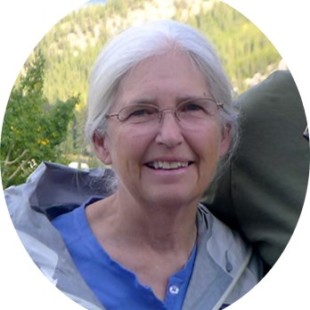
Caring Partners
When we married 44 years ago and pledged “for better or for worse”, Doug and I were definitely thinking more about the better than the worse. For the most part, better is what we got. We retired in 2003 and 2004 expecting to enjoy another 10 to 15 years of excellent health. Expectations have a way of flying out the window. Ours did.
For a few years we’ve lived in a little camper van for several months while we’ve gone fly-fishing and visited old friends. In 2007 I became increasingly aware of my hand shaking as I drove. I sat on it or placed it low on the wheel or between my legs to hide the tremors. I ignored it. Whenever my arm wasn’t engaged, it shook, at times with alarming frenzy. In Yellowstone as I became more obviously ill, I couldn’t deny the increased tremor, general weakness and sense of confusion I felt. I couldn’t hide my brain under my hamstrings.
In early 2008 I was diagnosed with Parkinson’s disease. We thought the better was behind us and prepared for the worse. Quickly we realized we had choices; we made them together. I didn’t want Doug to miss out on his life just because my body changed so a few days after the diagnosis, I solemnly announced, “When the time comes, I don’t want you to hesitate to put me in a home and keep on with your life.” He looked at me with a straight face and answered, “I’ve been thinking about that and I’ve decided to advertise for another partner on Craigslist.” We laughed, another hurdle behind us. I cried a little too.
Instead of planning for nursing homes, we decided to plan for life. Instead of redefining ourselves as caregiver and patient, we reaffirmed our relationship as partners, recognizing there would be changes along the way. I promised him I would not ask for help unless I needed it but if I asked, he should know that the need was real. For the most part I have kept that promise.
Our new plan for life included a redefined and an accelerated bucket list. We learned about Pedaling for Parkinson’s (PFP) and, realizing many of my symptoms might be helped by adopting an accelerated cycling routine. With Doug’s support I took to the bike like a crazy woman and nearly eliminated my symptoms, or at least slowed them considerably. With him leading the way, we cycled with the Pedaling for Parkinson’s group in the Register’s Annual Great Bike Ride Across Iowa (RAGBRAI) three times: 2009, 2010 and 2012. After we were asked to join a group of MS and PD patients who would climb Mount Kilimanjaro in 2011, Doug defined our training regimen and kept us to it. When a nasty virus prevented him from reaching the top of Kilimanjaro, the last thing he said to me in the bitterly cold night before turning back was, “I know you can do this”. And I did.
Although we had never been mountain climbers, Kilimanjaro whetted our altitude appetites. The next spring we joined a group trekking to Annapurna Base Camp in Nepal, followed in 2013 by hiking the Inca Trail to Machu Picchu in Peru, both at Doug’s suggestion.
Caring does not just mean pushing ourselves to extremes while we are still able. We realize the difference Pedaling for Parkinson’s has made in our lives and are determined to share that opportunity with other Parkinson’s patients around the world. Doug is the volunteer lawyer for PFP. Working with the founder of the program, neuroscientist Dr. Jay Alberts of the Cleveland Clinic, Doug created a license agreement that is being used in YMCAs and other locations around the United States. The license agreement outlines the program protocols and ensures the safety of people who are participating in the pedaling program. Although people call me for advice on pedaling and dealing with Parkinson’s, I always turn to Doug for his wisdom and encouragement as we take step after step along this unexpected path.
Other opportunities continually present themselves and he never steps aside. He is part of the control group for the Michael J Fox PPMI research project, which means that over the course of the research he endures five spinal taps and endless repetitive cognitive questionnaires. He comes with me to New York when I attend meetings for the People with Parkinson’s Advisory Council of the Parkinson’s Disease Foundation. He joined me for the World Parkinson’s Congress in Montréal, immersing himself in the science of Parkinson’s disease, asking insightful questions and drawing thoughtful conclusions. Doug never just comes along. He participates fully.
Little, quiet things matter. I come down in the morning and the coffee pot is cleaned and ready to go. He vacuums the house without being asked. He’s becoming a better cook than I. The cupboard is always full. He plays with the grandchildren, especially when I am too tired and need a nap. He will not clean a dirty diaper but he will lift the chubby little butt off the changing table so I can put a clean one on. He listens but is not interested in hearing me wallow. I am a fortunate woman.
The worse we expected with this diagnosis has in many ways made our lives better. Without Doug’s support and his high expectations, I would not have had the courage or tenacity to participate in these adventures, nor would I have had the confidence to reach out to other Parkinson’s patients to share my experiences. His love makes all the difference.

